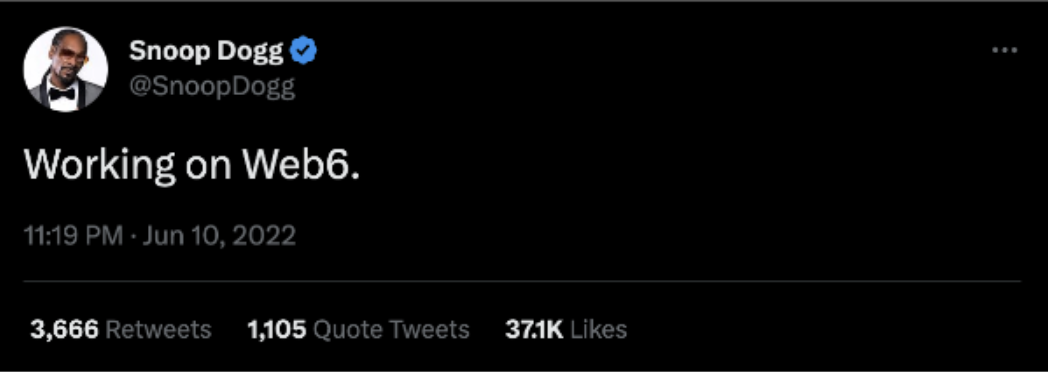From the introduction of NFTs and cryptocurrency to the rise of AI, the technology space is changing rapidly and many users are discussing how these technologies will affect us going forward. A common theme is the use of technology with true utility to positively change our lives and help us to live on this planet in a more sustainable way.
But there are some recurring themes that do not land well with me, all related to Web3.
At its core, Web3 is the utopian ideal of a more humane and egalitarian society where we have wrestled back control from the “evil tech giants” that monopolise and monetise our data. The enthusiastic evangelists at Web Summit told us repeatedly about how Web3 will transform our lives by using decentralised blockchain technologies that will help to democratise our data and our digital lives by the use of crypto, NFTs and the Metaverse.
But the more I heard about Web3, the more unclear I was about how this manifesto would actually be delivered. It felt like the good folk who got up on stage to talk about the latest NFT or cryptocurrency were just spinning this dream narrative without truly answering the fundamental questions about how this technology might be implemented or what benefits it will bring to us as a species inhabiting planet Earth.
As far as I can see the only problem to be solved by Web3 is how to post-hoc rationalise its own existence. (Admittedly there are a number of interesting blockchain projects that could provide real utility but in the main this dream is yet to truly materialise).
And because of this desire to build a more decentralised technology stack and to aspire to a more egalitarian internet, a more equitable society, and a better world we saw the Father of the Web, Tim Berners-Lee step in here at last year’s Web Summit, stating:
“Web3 is not the web at all.”
In its design, Web3 is a contentious topic among technologists due to its deeply polarising nature. It presents something of a false dichotomy between the legacy internet world of bad pop-up ads and poorly-managed personal data and a utopian dream based on unrealistic technology and crypto-populism.
And like many of the disruptive populist forces that have shaken the foundations of UK and US democracies over the last few years, we are yet to be able to really see how these movements can actually deliver upon the promise of positive change. The issue at its core is that the entities we are trying to wrestle control from are the web giants who are trying to monopolise this revolution.
Tim Berners-Lee’s solution is a course correction to wrestle back control of the web with what he calls Web3. To do this he came up with a new project called Solid, which can be thought of as your key or a digital ID that is kept secure to help you truly own your data in a personal pod and improve our security, control and ownership. This to me has real vision, real utility and real potential.
On a similar note, a recent talk by Molly White titled “Is Web3 Bullshit?” also resonated with me for it’s honesty and courage in seeing through the Emperor’s new clothes.
Looking at what Web4 and Web5 will supposedly offer it feels more like the same nebulous and vapid marketing drivel. Web4 will apparently feature characteristics such as variety vector and intelligent knowledge distribution. With Web5 offering decentralised identifiers, decentralised web nodes and decentralised web apps. Are you glazing over? I know I am.
All of these buzzwords make me fear that this is just more of the same Web3 slop we have been served for years just with slightly different ingredients for the gruel. How will these technologies provide real utility and positively affect the trajectory of our daily lives and that of the planet?
This is why I am pumped and amused by a recent Twitter post from none other than the American rapper and songwriter legendary Snoop Dogg, aka The Dogg Father, aka Snoop Doggy Dogg, aka Snoop Lion.

What funky-ass shit is Snoop cooking up in his laboratory on the West Side right now? Well I’m sure as hell it’s better than some of the nebulous garbage we hear from our supposed technology leaders for the past few years.
Let’s just say, I am utterly convinced that Mr Dogg would almost certainly do a better job of a viable web version than the current advocates of Web3, 4 and 5, and in all likelihood the outcome will be a lot more fun! So in my view we have the Father of the Web and the Dogg Father with the most compelling web manifestos right now.
Let’s trust in them to deliver.